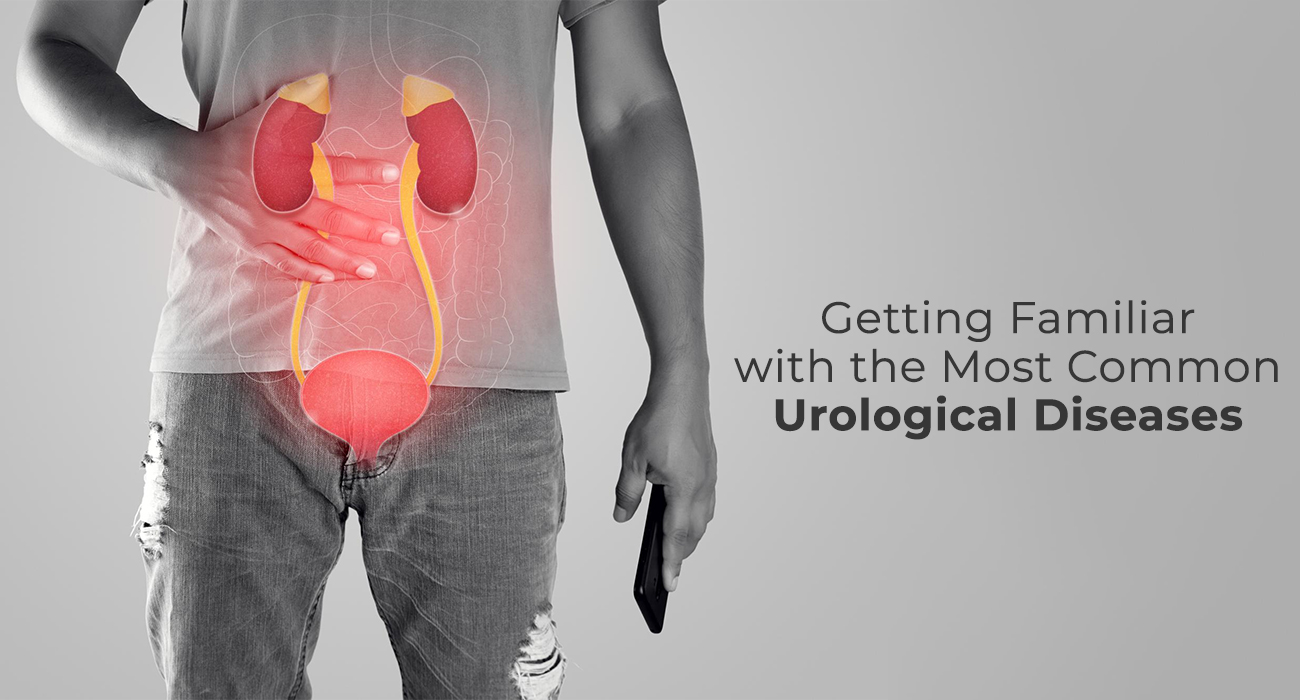Getting Familiar with the Most Common Urological Diseases
08/16/2023
Urological diseases encompass a wide range of conditions that affect the urinary tract and the male reproductive system. Common urological diseases include urinary tract infections (UTIs), kidney stones, prostate enlargement (BPH), and prostate cancer. Experts specializing in Urology Surgery treatment in Jaipur suggest that early detection, timely treatment, and lifestyle modifications play a crucial role in managing these conditions and maintaining optimal urological health. In this blog, we have elaborated on some of the most prevalent urologic diseases to help people recognize the signs at the earliest and seek timely medical intervention.
1. Urinary Tract Infections (UTIs)
Urinary tract infection (UTIs) is one of the most common urologic diseases, impacting millions globally. The infection results from bacterial invasion and proliferation within the urinary tract, causing symptoms like frequent urination, burning sensations, and cloudy urine. Women face a higher risk due to their shorter urethra, facilitating easy bacterial access to the bladder. While antibiotics typically resolve UTIs, recurrent cases necessitate more extensive evaluation. As per the Urology surgery experts in Jaipur, UTI is preventable. All you need to do is stay hydrated, refrain from using harsh products down there and practice proper toilet hygiene.
2. Kidney Stones
Kidney stones are solid masses formed from minerals and salts that crystallise in the kidneys. While the smaller stones unnoticeably pass along with urine, larger ones can get stuck in the urinary tract, giving rise to immense pain and discomfort. Common symptoms include sudden, intense pain in the back or side, blood in the urine, and nausea. Drinking plenty of water and adopting a healthy diet can help prevent kidney stone formation. In some cases, medical intervention may be required to break up or remove larger stones. You can find the best Urology Surgery Hospital in Jaipur where you can explore the best treatment options for kidney stones.
3. Benign Prostatic Hyperplasia (BPH)
Benign Prostatic Hyperplasia (BPH) is a non-cancerous enlargement of the prostate gland that is most commonly seen in elderly men. The condition can cause difficulty in urination, frequent trips to the bathroom, weak urine flow, and a feeling of incomplete bladder emptying. Medications and lifestyle changes are often recommended as initial treatment, while surgical options may be considered for more severe cases.
4. Urinary Incontinence
Urinary incontinence is a condition where a person loses control over their bladder, resulting in involuntary urine leakage. The condition affects nearly one-third of the male population above the age of 50. It can be caused by various factors such as age, pregnancy, obesity, or neurological disorders. Treatments range from pelvic floor exercises and behavioural modifications to medications and surgical procedures, depending on the underlying cause.
5. Prostate Cancer
Prostate cancer is one of the most prevalent cancers among men. Studies suggest that nearly 1 out of every 8 men are likely to be diagnosed with the condition in their lifetime. Early detection is crucial for successful treatment. Regular screening tests like the prostate-specific antigen (PSA) test can help identify early signs of prostate cancer, making it easier to manage the condition. Treatment options for prostate cancer include surgery, radiation therapy, hormone therapy, and active surveillance for certain cases.
6. Bladder Cancer
Bladder cancer develops in the tissues of the bladder and can cause symptoms like blood in the urine, frequent urination, and pain during urination. The risks of a man developing the condition are about 1 in 28, whereas, in the case of women, it is around 1 in 91, which clearly indicates that bladder cancer is more likely to affect the male population. Smoking and exposure to certain chemicals are known risk factors for bladder cancer. Treatment options may include surgery, chemotherapy, immunotherapy, and radiation therapy, depending on the stage and severity of the cancer.
Being familiar with the most common urological diseases is vital for everyone to provide timely and effective care to patients. As per the experts specializing in the treatment of urologic diseases, early detection and appropriate treatment can significantly improve the prognosis for many urological conditions. Patients should be educated about the importance of regular check-ups, healthy lifestyle habits, and seeking medical attention if they experience urological symptoms.

